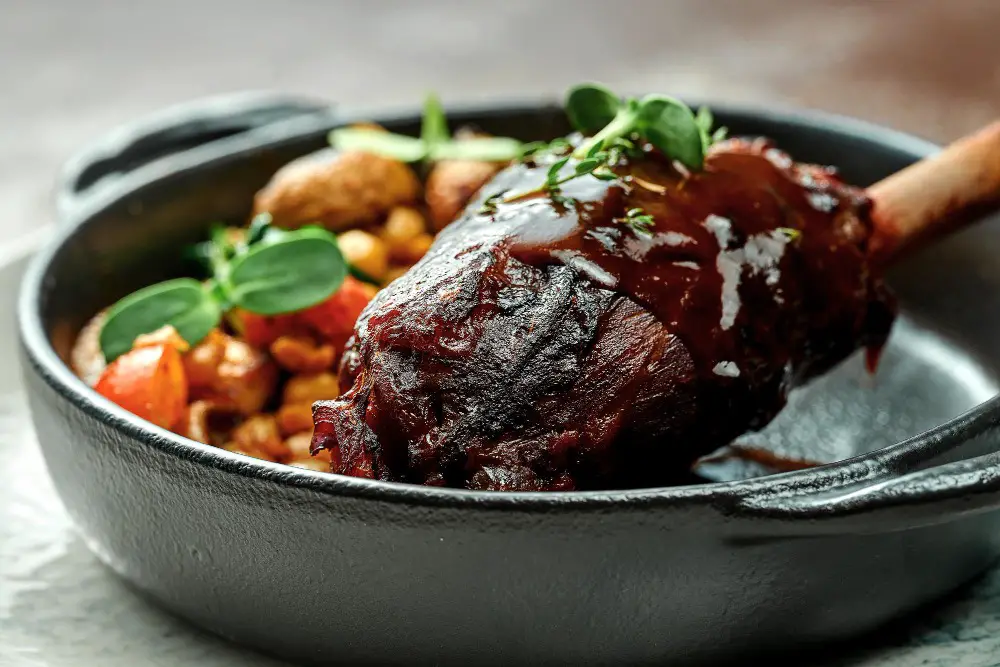Introduction and Comparison
Introduction
Bison and beef are two popular types of red meat that are often compared for their taste, nutritional value, and cooking methods. While bison is known for its leaner texture and richer flavor, beef is more commonly consumed and recognized. This article delves into the similarities and differences between these two meats, focusing on their nutritional profiles, environmental impacts, and cooking techniques. We’ll explore the health benefits, sustainability practices, and culinary applications of both, providing a comprehensive guide for meat enthusiasts and health-conscious consumers alike. For a detailed guide on cooking bison, you can explore this ultimate guide to cooking bison with recipes and tips.
Bison vs. Beef: Nutritional Comparison
Both bison and beef are excellent sources of protein, iron, zinc, and other essential nutrients. However, there are some notable differences:
- Calories and Fat:
- Bison: Lower in calories and fat, making it a healthier option
- Beef: Higher in calories and fat, but still a good source of nutrients
- Vitamins and Minerals:
- Similar content of iron, zinc, phosphorous, niacin, selenium, vitamins B6 and B12
- Bison slightly edges out beef in some minerals
- Omega-3 Fats Ratio:
- Bison: Higher omega-3 content, beneficial for heart health
- Beef: Lower omega-3 content
- Find detailed nutritional information at USDA
- For a comprehensive comparison of bison and beef, check this nutritional comparison.
The winner in terms of health benefits seems to be bison, with its lower calorie content and higher omega-3 ratio. However, both types of meat offer valuable nutrients and can be part of a balanced diet.
Environmental Impact and Animal Treatment
The environmental impact of raising bison and beef also varies:
- Carbon Emissions:
- Bison: Often grass-fed, leading to lower emissions
- Beef: Typically grain-fed, resulting in higher emissions
- Preservation of Grasslands:
- Bison helps in preserving grasslands and maintaining ecosystem balance
- For a detailed analysis of why you might choose bison over beef, read this comprehensive comparison.
Taste, Cost, and Cooking Differences
The taste, cost, and cooking methods for bison and beef are:
- Flavor Comparison:
- Bison: Richer flavor, smoother mouthfeel, less gamey
- Beef: Similar taste but less rich, more familiar
- Cost per Pound:
- Bison is generally more expensive due to limited supply
- Cooking Differences:
- Leanness: Bison is leaner, requires careful cooking
- Cooking Time: Bison cooks 1/3 faster, needs monitoring
- Seasoning: Less seasoning needed for bison due to natural flavor
- Recommended Cooking Methods for Bison:
- Grilling, roasting, smoking, pan-searing, braising
- For delicious bison recipes, explore these 10 savory delights.
Cooking Guidelines, FAQs, and Conclusion
Cooking bison requires some specific guidelines due to its unique characteristics:
- Preparing Bison:
- Bring to room temperature: Ensures even cooking
- Resting time before serving: Retains juices
- Cooking Time:
- Cooks about 1/3 faster than beef: Requires attention
- Recommended Internal Temperature:
- Medium-rare to medium for best flavor: Avoid overcooking
- Substituting Bison in Beef Recipes:
- Can be used interchangeably in red meat recipes
- Adjust cooking time accordingly: Follow bison-specific guidelines
FAQs
Here are some frequently asked questions about bison and beef:
- How does bison taste compared to beef?
- Similar taste, richer flavor, smoother mouthfeel
- Is bison healthier than beef?
- Lower in calories and fat, higher in protein
- How to cook bison to maintain its flavor?
- Medium-rare to medium, minimal seasoning, specific methods
- What are the environmental impacts of bison vs. beef?
- Carbon emissions, grasslands preservation, sustainability
- Can bison be used in regular beef recipes?
- Interchangeable in red meat recipes, cooking time adjustments
Conclusion
In conclusion, both bison and beef have their unique characteristics and benefits. While bison stands out for its nutritional advantages and environmental sustainability, beef remains a versatile and familiar option. The choice between these two meats depends on individual preferences, health goals, and environmental considerations.
For those looking to explore a leaner and richer alternative to beef, bison offers an exciting option. Its unique taste and texture, combined with its health benefits, make it a worthy addition to any diet. Whether grilled, roasted, or braised, bison provides a delightful culinary experience that is both delicious and responsible.
This comprehensive guide to bison and beef aims to inform and inspire readers to make mindful choices in their culinary adventures. Happy cooking!

